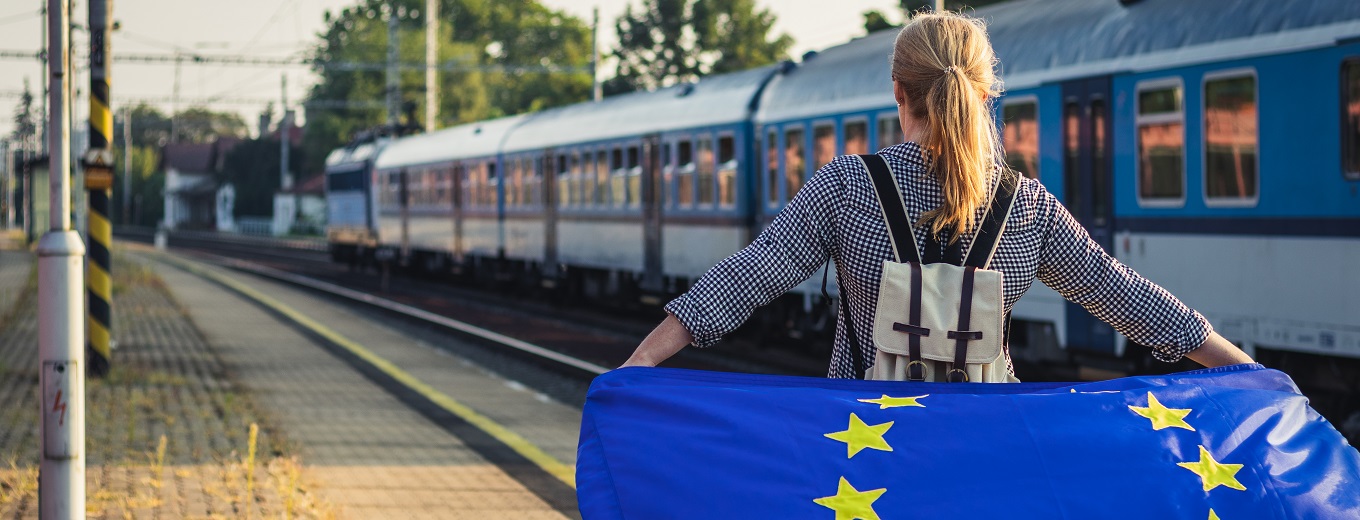Young Europeans met in Prague to discuss the future of Europe and the current challenges in the framework of the Ninth Cycle of the EU Youth Dialogue.
From 11 to 13 July 2022, more than 300 participants, including youth delegates, government, NGO representatives and policymakers from all over Europe – EU Member States, EFTA countries and Western Balkans – met in Prague for the second conference of the Ninth Cycle of the EU Youth Dialogue organised under the Czech Presidency of the Council of the European Union. The EU Youth Dialogue constitutes a unique mechanism to involve young people in European policy-making by creating a dialogue between the youth and the decision-makers. For three days, the participants exchanged not only best practices but also success factors and support mechanisms to enable young people to contribute to creating a more sustainable and inclusive Europe. This cycle focuses on two of the eleven EU Youth Goals – n° 3 Inclusive Societies and n° 10 Sustainable Green Europe – and aims to examine their implementation at the EU level.
The current cycle started in January 2022 with a virtual conference organised under the French Presidency of the Council of the European Union. It served as an explanatory phase to examine the theme of the cycle: “Engaging together for a sustainable and inclusive Europe”. Five priority areas have been identified: i. information and education; ii. action and accountability; iii. governance; iv. mobility and solidarity; v. access to infrastructure. The ideas and opinions shared between the delegates were then incorporated into Conclusions of the Council and the representatives of the governments of the Member States on “fostering engagement among young people as facilitators of change in order to protect the environment” adopted in April 2022.
The kick-off of the second conference started with a speech by the Czech Minister for Education, Youth and Sports, Vladimír Balaš, and the director-general for education, youth sport and culture of the European Commission (EC), Themis Christophidou. Both highlighted the active role that young people play in building a sustainable and inclusive future for Europe, particularly in the context of the European Year of Youth. Youth-led organisations contribute notably to implement, monitor and review the European Youth Strategy 2019-2027 as well as to hold governments accountable. Afterwards, a panel discussion showcased specific examples and best practices on sustainability and inclusive societies, which could serve as models. Moreover, workshops and roundtables were organised in which the participants, based on the mid-term report, underlined various success factors that would enable to generate a more sustainable and inclusive future: i. to lower the threshold of participation in any EU programmes and initiatives; ii. to create better participation mechanisms that can hold decision-makers accountable; iii. to deliver trustworthy information and expertise; iv. to invest more in sustainable infrastructure, in particular in renewable energy; v. to increase political and financial investment in the youth sector. Furthermore, the emphasis was also placed on the importance of having an intergenerational dialogue as climate issues involve all generations, not only young people. This reflects the Czech presidency programme, which focuses on the intergenerational dimension in the youth field to foster dialogue and social cohesion as one of its priorities.
The recommendations formulated by the youth delegates during the conference will be gathered in a Conference report, which will constitute the input for the Council Conclusion from the Czech Presidency once the national consultation phase is over at the end of the summer. The last phase of this ninth cycle will take place at the beginning of 2023 under the Swedish Presidency of the Council of the European Union and will continue the discussion. The conclusions of the three conferences will then be presented to the Council of the European Union for the adoption of a policy document on the EU Youth Dialogue outcomes.

